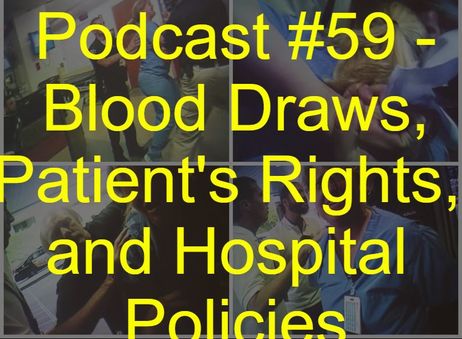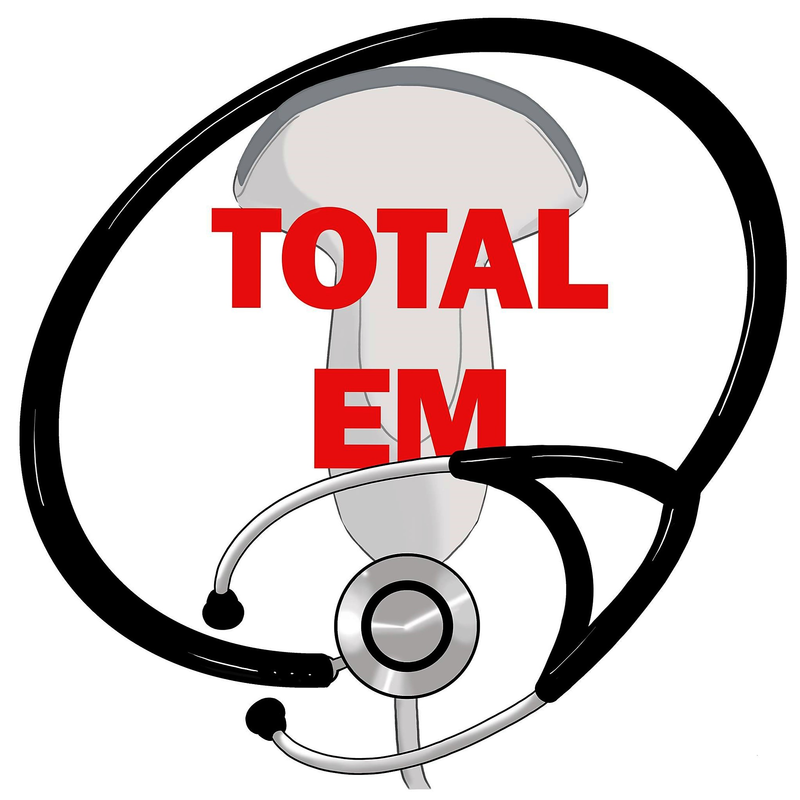|
Today’s podcast is a little brief but covers and important topic: blood draws and patient’s rights. This comes up due to a recent incident in Salt Lake City at University Hospital when a detective of the Salt Lake City Police Department arrested Alex Wubbels, a nurse there, when the officer attempted to collect blood for testing from an unconscious patient.
It is important to remind everyone listening and reading that this author is not an attorney and that the information presented here is to facilitate discussion but should not be used in any legal capacity whatsoever, including but not limited to establishing “standard of care” in a legal sense or as a basis for expert witness testimony. No guarantee is given regarding the accuracy of any statements or opinions made on the podcast or blog.
With that little disclaimer out of the way, let us quickly discuss the case and then what the supporting evidence. The incident has been well reported by media outlets such as Deseret News, KSL, and The Salt Lake Tribute. In summary, Alex Wubbels was a charge nurse at the burn unit of her hospital when police requested blood from an unconscious patient for testing. A policy from the hospital which was made approximately one year prior in cooperation with law enforcement indicated that patient’s blood could only be given if the patient had given consent, was under arrest, or there was a warrant. In the videos from the incident, the detective told another officer that they would not be able to obtain a warrant since there was no probable cause (referred to as “PC” in the video). The patient was not under arrest at the time. In fact, according to the detective, he was obtaining the blood to help the patient. The patient was an off-duty reserve police officer who was driving a semi-truck that was struck by another vehicle running from police. Law enforcement claimed that the patient’s blood could be used under “implied consent” since the patient was unable to give consent himself. However, this conflicts with previous judgements including the United States Supreme Court.
Please note the first 30 seconds of the video are without audio. While attempting to discuss this issue of consent to police, Alex Wubbels was forcefully arrested by the detective. Meanwhile, administrators were still being contacted to discuss the issue and find a solution with several already on their way when the arrest was made. A lieutenant for the department also responded after the arrest and explained that had she complied she would not have been arrested. Video also shows that he is unwilling to talk to administrators on the phone regarding the privacy issue and patient’s rights. Eventually, Alex Wubbels was released by the police without charges. Shortly after information of the arrest and its videos were released to the media, officers were placed on administrative leave.
How did this happen? Communication is a key part. Although the hospital had created a policy that was written along with law enforcement, they did not share the same thoughts when it came to this important matter. Worse yet, officers were acting under incorrect assumptions when they said they could use implied consent. The Supreme Court of Utah decided in 2007 that “implied consent” could not be used for blood draws. More recently, the Supreme Court of the United States decided in 2016 that the Fourth Amendment allows for warrantless breath tests but not warrantless blood tests. The differentiation is based on the invasiveness of the procedure, the ability for blood to be used for other purposes (in addition to obtaining a blood alcohol content level), and embarrassment. What does this mean for patients? The Supreme Court of the United States essentially makes the final decision when it comes to deciding if laws are Constitutional. Since warrantless blood draws were decided to be unconstitutional under the Fourth Amendment, this would imply that such procedures cannot be performed. It is worth noting though that this only protects patients from criminal charges for failure to give blood without a warrant. However, if a warrant is obtained, blood can be used as outlined under the Fourth Amendment. What does this mean for us? It is vitally important that we follow hospital policies and the law. This is a conversation to have before law enforcement comes to you requesting blood or other evidence. Check your hospital policies and make sure they are in place. If not, this is the perfect time to build a policy and have a discussion with local law enforcement. Make sure everyone is educated and keep this close in hand. This is also an important time to remember that administration plays a key role in helping with such difficult decisions. What do we do next? We need open and honest conversations with all patients, staff, and visitors (including law enforcement). Although police are here to serve and protect, we must also protect patient’s rights and follows appropriate actions. In the case of Alex Wubbels, she appears to have fulfilled those duties and was acting in the patient’s best interests while obeying the law. We should commend her actions and learn more from her and others who have worked to protect patients and staff. Violence in the against healthcare workers is a real issue and we need to stand against this. Luckily, key individuals such as the Salt Lake City mayor and the police chief have issued apologies and started investigations into this matter. However, it would have been far better to have prevented such an incident. We should in our own settings work toward identifying areas that need policy changes such as blood draws. Let us know what you think by giving us feedback here in the comments section or contacting us on Twitter or Facebook. Remember to look us up on Libsyn and on iTunes. If you have any questions you can also comment below, email at [email protected], or send a message from the page. Please check our bandwidth sponsor, FunnyRx, too. We hope to talk to everyone again soon. Until then, continue to provide total care everywhere.
0 Comments
Leave a Reply. |
Libsyn and iTunesWe are now on Libsyn and iTunes for your listening pleasure! Archives
August 2022
Categories |
||||||


 RSS Feed
RSS Feed